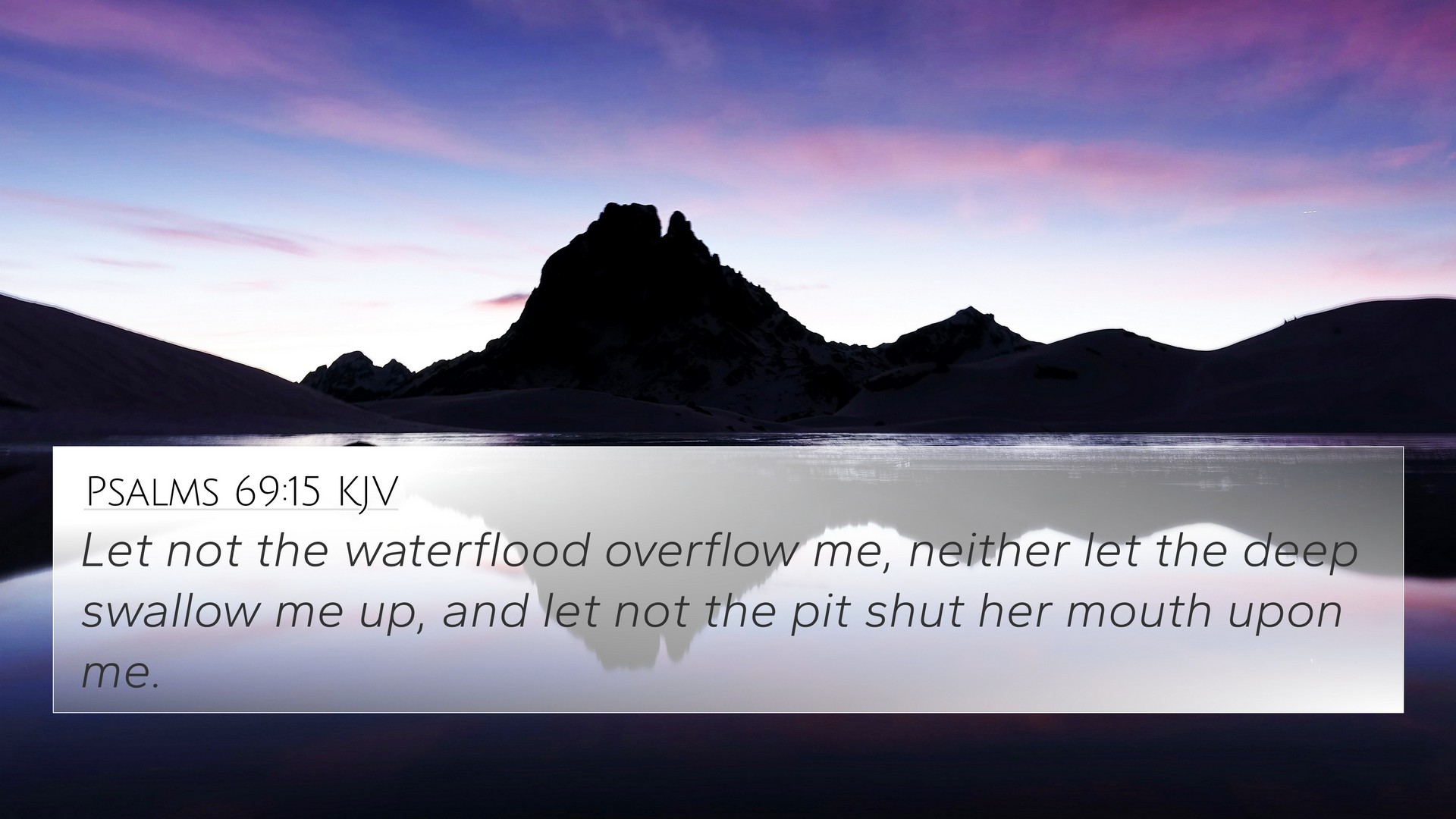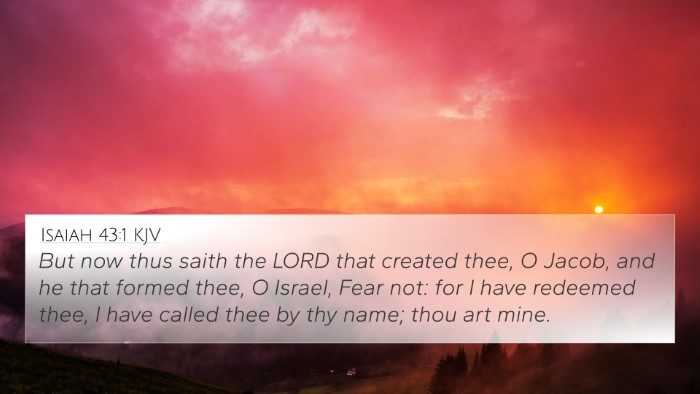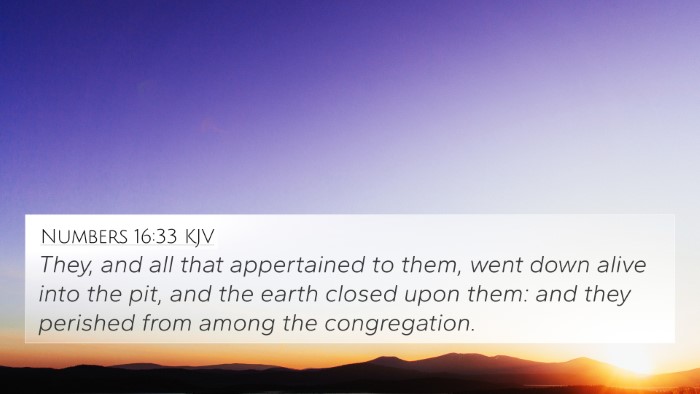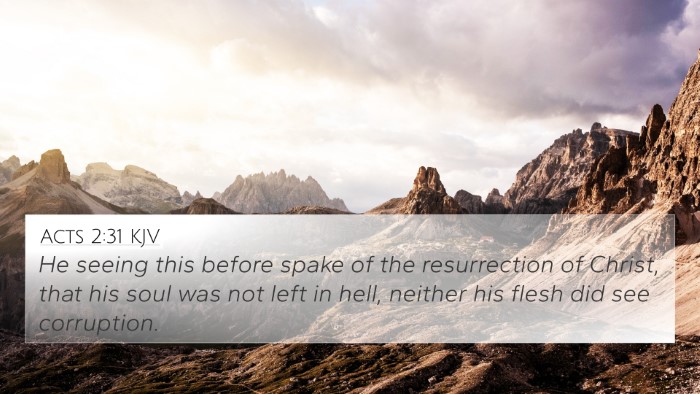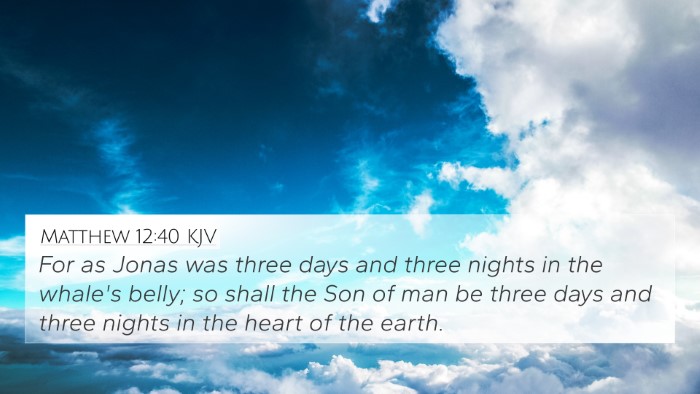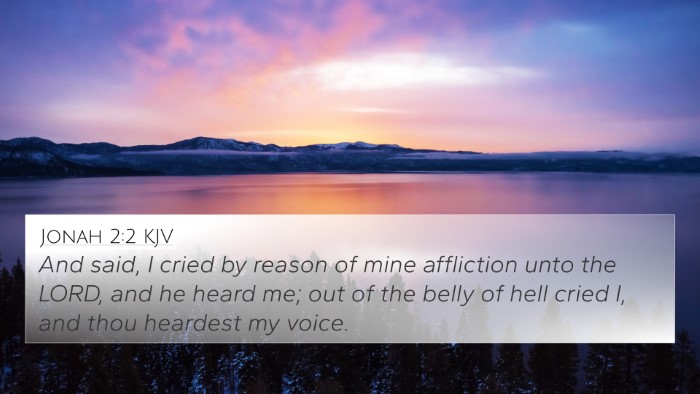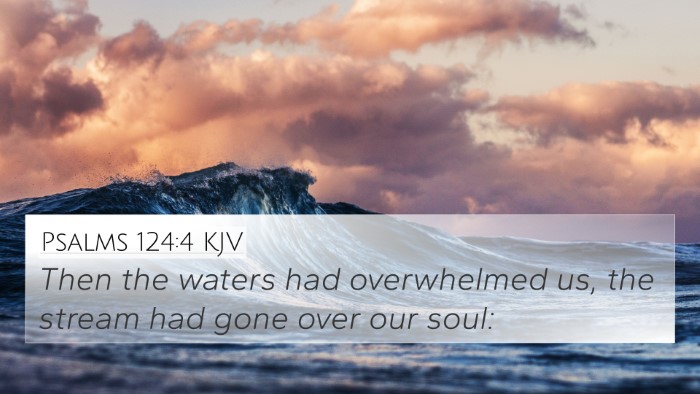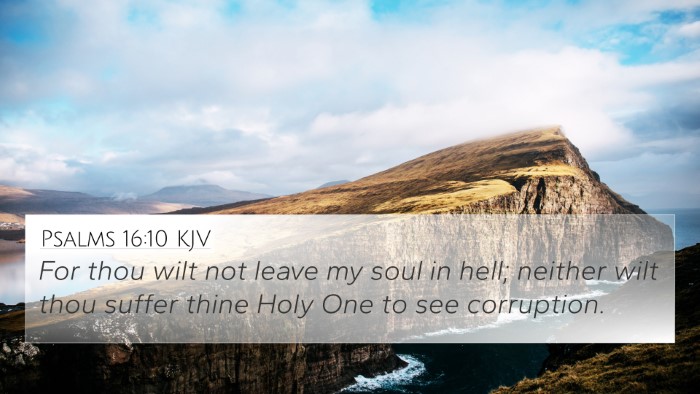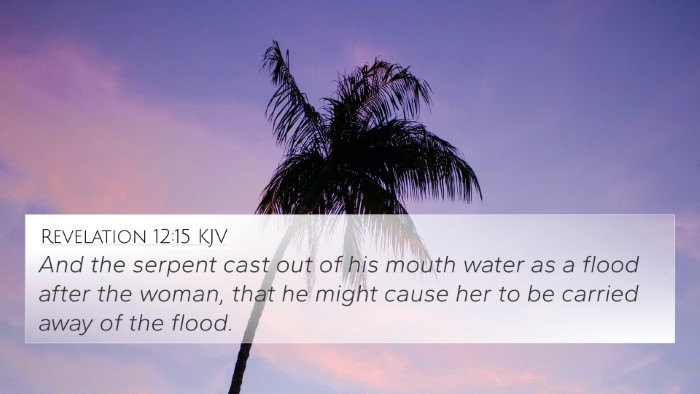Psalms 69:15 - Meaning and Interpretation
Psalms 69:15 reads: “Let not the waterflood overflow me, neither let the deep swallow me up, and let not the pit shut her mouth upon me.” This verse embodies a plea for divine intervention and expresses deep emotional distress. Below, we will explore its significance, related scriptures, and insights from esteemed public domain commentaries.
Contextual Overview
Psalms 69 is often considered a penitential psalm. It deals with themes of suffering, the burden of sin, and appeals for God’s mercy. The psalmist expresses a sense of drowning—both literally in terms of overwhelming troubles and metaphorically in spiritual struggles.
Commentary Insights
Matthew Henry Commentary
Henry notes that the imagery of water signifies danger and overwhelming circumstances. The psalmist's cry reflects a heart that feels besieged by troubles, paralleling the trials faced by believers who are under spiritual and physical duress. Henry emphasizes the importance of seeking God when in dire situations.
Albert Barnes' Notes on the Bible
Barnes elaborates on the “waterflood” as representative of trials and adversities that can engulf a person. He interprets the “pit” as a metaphor for despair, indicating a state of losing hope. Barnes asserts that this verse captures the essence of a believer's reliance on God amidst insurmountable challenges.
Adam Clarke's Commentary
Clarke delves into the psychological aspect of the psalmist's plea. He suggests that the mention of being swallowed points to the complete devastation of spirit. Clarke interprets this as an appeal to God's compassion, highlighting the fragility of human existence and the need for divine support.
Connections to Other Bible Verses
Psalms 69:15 parallels various scriptures, creating a tapestry of themes involving distress, divine intervention, and the necessity of faith. Below are cross-references that further illuminate its meaning:
- Psalms 42:7: "Deep calls to deep at the sound of Your waterfalls; All Your breakers and Your waves have gone over me."
- Matthew 14:30: "But seeing the wind, he became frightened, and beginning to sink, he cried out, 'Lord, save me!'"
- Isaiah 43:2: "When you pass through the waters, I will be with you; and through the rivers, they will not overflow you."
- 2 Peter 2:4: "For if God did not spare angels when they sinned, but cast them into hell and committed them to chains of gloomy darkness to be kept until the judgment."
- Jonah 2:5-6: "The waters closed in over me to take my life; the deep surrounded me; weeds were wrapped about my head. At the roots of the mountains, I went down to the land whose bars closed upon me forever; yet you brought up my life from the pit, O Lord my God."
- Psalms 88:6: "You have put me in the depths of the pit, in the regions dark and deep."
- Romans 8:38-39: “For I am convinced that neither death nor life, nor angels nor rulers, nor things present nor things to come, nor powers, nor height nor depth, nor anything else in all creation, will be able to separate us from the love of God in Christ Jesus our Lord.”
- Lamentations 3:54: "Waters flowed over my head; I said, 'I am cut off!'"
- Psalms 32:6: "Therefore let everyone who is godly offer prayer to you at a time when you may be found; surely in the rush of great waters, they shall not reach him."
- Revelation 20:14: "Then Death and Hades were thrown into the lake of fire. This is the second death, the lake of fire."
Thematic Bible Verse Connections
This verse invites a comparative analysis of several themes prevalent across scripture:
- Divine Deliverance: The act of crying out to God for deliverance links this verse with various narratives where individuals seek God in times of dire need.
- Imagery of Water: The use of water as a metaphor for chaos and destruction can be traced throughout the Psalms and the New Testament.
- Human Vulnerability: This theme underscores the need for reliance on God, resonating with the struggles depicted in both the Old and New Testaments.
Cross-Referencing Strategies
To effectively engage in cross-referencing Bible study, one may utilize various tools and methods:
- Employ a Bible concordance to look up key terms related to your verse of study.
- Use Bible cross-reference guides that highlight connections between verses.
- Take note of themes and keywords in the verse and explore their appearances throughout the Bible.
- Analyze comparative studies by examining parallel passages in the Gospels and Epistles.
- Develop a personal Bible chain reference to track related scriptures.
Conclusion
Psalms 69:15 is a profound verse that encapsulates the desperation of the human condition and the unyielding hope for divine intervention. By understanding its context and connecting it with other scriptures, believers can appreciate the themes of reliance, suffering, and salvation that run throughout the Bible. Engaging with Bible verse cross-references serves as a vital tool in deepening our understanding of God's word and its relevance in our lives.
